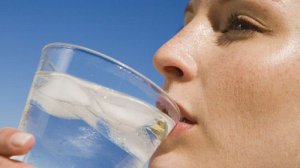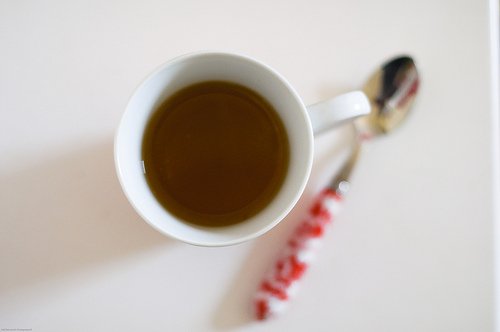Learn the Right Way to Drink Water

We’re constantly reminded to drink plenty of water to help cleanse the body and maintain good health, but do you know how to do it the right way? The amount you drink is important, but you also need to learn to drink water at the right times of the day. In today’s article, we’ll explain the right way to drink water, and how this can also help you with other health issues.
The importance of water
Water is the essential makeup of our bodily fluids (urine, sweat, digestive juices, saliva, tears, etc.), but the cells of the body also need it to function normally.
You also know that while it’s important to drink water, you also obtain water from the food you eat – especially fruits and vegetables.
What kind of water should you drink?
If your tap water is good quality, that’s always the most healthy, economical, and environmentally friendly option. But you need to make sure that the quality of your public water is high both at the source and after it comes out through your pipes.
Bottled water is a good alternative, as long as it’s also high quality.
Finally, osmotic and other kinds of filters are also options. Your water shouldn’t have an unusual taste or smell to it.
How much should you drink?
In general, the recommended daily intake of water is between a liter and a half to two liters, or around 6 to 8 glasses. If you follow these tips you’ll find it’s not that difficult to attain this goal.
But you also need to consider your particular situation or conditions. You need less water during the winter than in summer, for example, and you need more if you exercise regularly versus leading a sedentary lifestyle.
Start out by increasing the amount of water you drink gradually – add half a glass every two or three days until you get up to 8 glasses a day. As you do this, you’ll start seeing changes in your overall health. Maybe you’ll have more energy, or notice your skin improving. You might start to sweat more. That’s because you’re giving your body the ability to eliminate toxins more efficiently, leaving it cleaner and more vital.
What is the right way to drink water?
Drink water in the morning
The best time to drink water is on an empty stomach. You can drink up to four glasses of water before breakfast, as long as you do it slowly and without starving yourself. Gradually increase the amount you drink in the mornings and eventually, it will feel like your body’s craving it.
This simple trick helps kick start all your internal organs. In addition, we recommend taking note of the temperature of your water:
- If you tend to get constipated, drink warm water.
- If you have diarrhea or loose stools, drink fresh – but never cold – water.
- As a general rule, warm water is best.
Before meals
If you want to avoid eating too much or too quickly, try having a glass of water about 15 minutes before your meal. This is also a great way to fight anxiety.
See also: 10 Benefits of Drinking Water on an Empty Stomach
Avoid drinking it with meals
The worst time to chug a lot of water is while you’re eating, because you’re mixing it with food and gastric juices that will only worsen your digestion.
If your food is especially flavorful you might need to drink some water, but if you get used to drinking it before and add fresh foods to your meals (like salads, gazpacho, etc.) you’ll feel less of a need to drink while you eat.
For this same reason, we don’t recommend drinking water right after you eat, with the exception of herbal teas.
 At night
At night
At night it’s not a bad idea to drink a glass of water right before you go to bed, as long as it doesn’t make you get up in the middle of the night to go to the bathroom and disrupt your rest.
See also: 5 Surprising Benefits of Drinking Water
Tips for drinking more water
- Try some delicious and original flavored water, such as fruit juices and herbs
- Drink herbal teas
- Make homemade lemonade using water, lemon juice, mint, and stevia
- Always carry a bottle of water with you, and when you’re at home make it a habit to have water in the room where you are.
All cited sources were thoroughly reviewed by our team to ensure their quality, reliability, currency, and validity. The bibliography of this article was considered reliable and of academic or scientific accuracy.
- Malagelada, J.R., Go, V.L., Summerskill, W.H. (1979) Different gastric, pancreatic, and biliary responses to solid-liquid or homogenized meals. Dig Dis Sci, 24(2). PMID: 371939
This text is provided for informational purposes only and does not replace consultation with a professional. If in doubt, consult your specialist.








